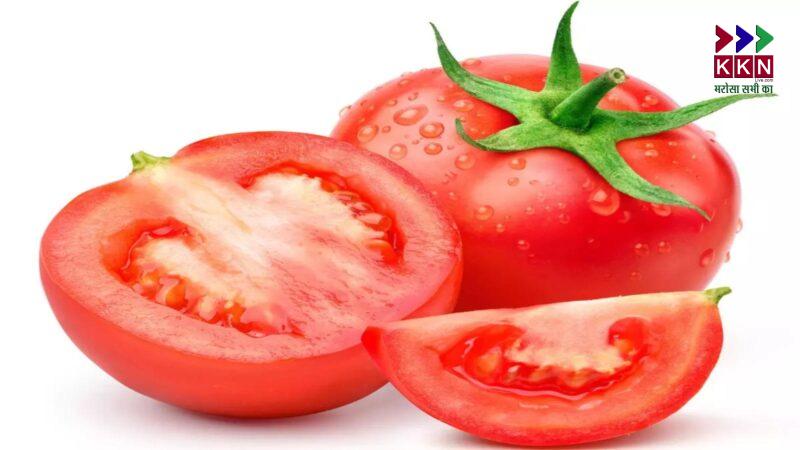KKN Gurugram Desk | Researchers at Chongqing Medical University, China, have discovered that lycopene, a natural pigment found in tomatoes and watermelons, may help alleviate depression symptoms by improving brain cell communication. While initial animal studies show promising results, the required human dosage remains a major challenge. More research is needed to confirm its effectiveness and safety for human use.
Article Contents
Lycopene: A Natural Compound with Potential Mental Health Benefits
Lycopene is a powerful antioxidant responsible for the red and pink colors of tomatoes, watermelons, and other fruits. This naturally occurring carotenoid is already known for its heart health and anti-inflammatory benefits, but recent studies suggest it may also play a neuroprotective role.
Researchers found that lycopene may enhance synaptic plasticity, the brain’s ability to form new neural connections. This function is crucial for memory, learning, and emotional stability. Given the rise in mental health disorders, scientists are exploring natural treatments like lycopene to offer alternatives to synthetic antidepressants.
Study on Mice Shows Lycopene’s Potential for Depression Treatment
To test lycopene’s impact, scientists conducted a study on 60 male mice. They induced stress-related depression-like behaviors and divided the mice into two groups:
- One group received lycopene supplements.
- The other was given a placebo.
The results were significant. Mice treated with lycopene showed increased social interactions and renewed interest in pleasurable activities, such as drinking sugar-water, which is a common test for anhedonia (loss of pleasure). These findings suggest that lycopene could help regulate mood and emotional response.
The Dosage Challenge: Can Humans Consume Enough Lycopene?
Despite the positive findings, there is a major hurdle—the required dosage. The mice in the study received 20 milligrams of lycopene per kilogram of body weight. If applied to humans, a 200-pound person would need approximately 147 milligrams of lycopene daily.
To put this into perspective:
- A medium tomato contains about 3 milligrams of lycopene.
- A cup of watermelon provides 7 milligrams.
To match the study’s dosage, a person would need to eat 21 tomatoes or 14 cups of watermelon daily—an impractical amount for anyone. Additionally, studies indicate that consuming more than 75-100 mg of lycopene per day may not be entirely safe.
Can Lycopene Become a Viable Depression Treatment for Humans?
While the study suggests lycopene’s neuroprotective properties, more research is required before recommending it as a clinical treatment for depression. Some key limitations include:
- The study was conducted only on male mice.
- Researchers focused solely on the hippocampus, the brain’s memory center, leaving other brain regions unexamined.
- Long-term effects of lycopene on mental health are still unknown.
A Step Toward Natural Mental Health Solutions?
With synthetic antidepressants often causing side effects, plant-based treatments like lycopene could offer a safer alternative. However, until researchers develop an effective human dosage, relying solely on tomatoes and watermelons for mental health benefits is unrealistic.
Should You Add More Lycopene to Your Diet?
Although lycopene may not be a magic cure for depression, it offers numerous health benefits. Consuming a diet rich in fruits and vegetables, including tomatoes and watermelons, can contribute to overall brain and heart health.
While lycopene’s potential to reduce depression symptoms is exciting, it remains in the early research stages. The challenge lies in developing a practical human dosage that is both effective and safe.
As scientists continue their studies, the future of nutrition-based mental health treatments looks promising. Until then, incorporating lycopene-rich foods into a balanced diet may offer some cognitive and emotional benefits, even if they aren’t a standalone cure for depression.




